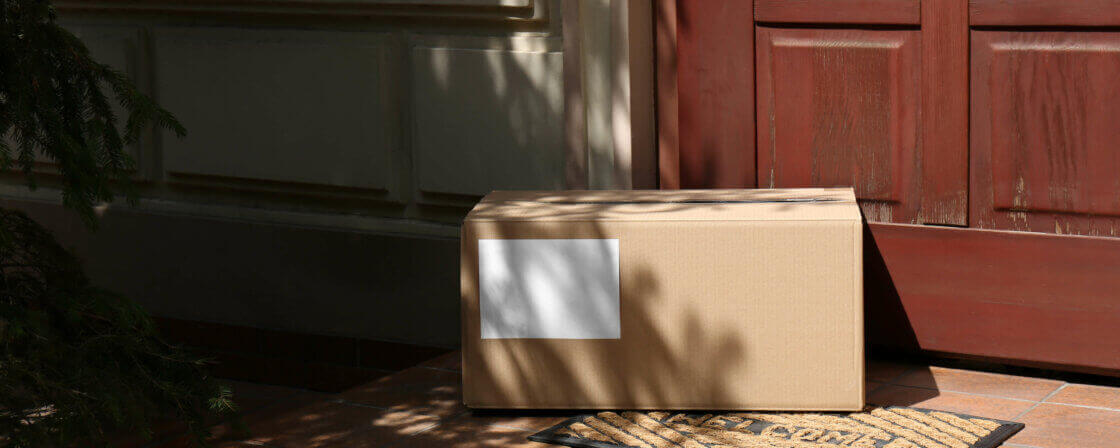You may have experienced this before, you ordered a package from a Chinese e-shop, but instead you received a text message from the Czech Post asking you to fill in the details of your shipment for customs clearance. What to do now?
What is customs duty and when is it paid?
Customs duty or customs fee is a levy levied by the government when goods cross the customs border. It is a protective measure to protect the local market from imported goods from foreign countries. But it is also used as a form of political struggle and a way to raise money. The collection and administration of customs duties is the responsibility of the Customs Administration and is regulated by the Customs Act.
As the countries of the European Union share a common customs border, there is free trade and no customs duties are payable. However, if you want to buy goods from outside the EU, you may already be subject to customs.
What is VAT and when is it payable
VAT is an abbreviation for value added tax. It is a form of indirect tax that is paid on the purchase of goods and services and is one of the main revenues of the state budget. You pay VAT almost every time you buy an item or pay for a service. There are two types of rates – the basic 21% and the reduced 12%.
For goods and services purchased in the Czech Republic, VAT is included in the price, but the problem arises when buying goods from outside the European Union, where VAT is not included, as each country has different tax settings. Until recently, VAT did not apply to shipments up to EUR 22. However, this is no longer the case and now applies to almost all goods imported from outside the EU.
Customs duty and VAT on goods from China
Buying cheap goods from Asian e-shops, especially from China, is becoming increasingly popular among people. Ebay, Shein or Aliexpress in particular are among the most popular portals to buy such goods. It is also common to import goods from the USA, where the offer is much wider than here. Especially if you are looking for something really specialised, it may be worth looking into the American offer. Until 2021, this purchase was very simple, because such small shipments of up to EUR 22 were not subject to customs duty or VAT.
However, the VAT and customs duties on these shipments added up to a large sum, which the EU Member States were losing, and the EU has therefore decided to change this situation. So from 2021, there is an obligation at a supranational level within the EU to pay VAT on the price of all goods purchased outside the EU. You are then obliged to make a customs declaration for shipments with a value of more than €22 and pay customs duty for shipments with a value of more than €150. The rules for VAT and duty from the US are then the same as for China.
Are you solving a similar problem?
Get advice
Are you getting lost in VAT and customs duties on goods from abroad or do you have a problem you don’t know how to deal with? Don’t worry, get advice from a lawyer. We can assess your specific situation and help you to resolve it.
I want to advise
- When you order, you know what you will get and how much it will cost.
- We handle everything online or in person at one of our 6 offices.
- We handle 8 out of 10 requests within 2 working days.
- We have specialists for every field of law.
How to pay VAT on goods from China
As already mentioned, VAT always applies to goods ordered outside the European Union and you do not have to pay it (except for goods marked as a gift and sent by a private person that do not exceed 45 euros). There are several ways to pay VAT.
Chinese e-shops most often deal with VAT through the so-called single point of entry scheme. This works so that these e-shops pay VAT in aggregate on all the goods they sell to the EU. VAT is therefore already part of the price of the goods you buy and you do not have to worry about anything.
You can recognize goods for which VAT is already included in the price by the “VAT included” marking below the price of the goods.
Another option often used by these e-shops is to set up warehouses directly in the EU from where they ship goods to buyers in the area. In this case, the VAT is also included directly in the price of the goods you order, so you don’t have to deal with it anymore.
If you are ordering from somewhere where VAT is not included in the price of the goods, then you have no choice but to pay the VAT yourself. In this case, you must pay the VAT to Customs. The Customs offers its own eCeP application for this purpose, where you file your customs declaration and pay the VAT directly (we discuss this in more detail below). This option is available to you when you have your package sent by Czech Post, which is the standard carrier for shipments from abroad.
There is another option, but it is quite expensive, which is to use an authorised company that will represent you in the customs procedure and handle the VAT for you. This is usually the Czech Post or another transport company.
How to pay duty on goods from China
Customs duty on goods from China is payable if the goods are worth more than €150 excluding shipping costs. However, a customs declaration is already required if the goods are worth more than €22 or if you have to pay VAT.
It is common practice with large Chinese e-shops that the goods you order travel from China first to their warehouses in the European Union, where the goods are cleared and then shipped to you. In this case, you do not have to do anything. However, if the goods have come directly from China and are worth more than €22, then you have to file the customs declaration directly or, as mentioned in the section on VAT, authorise the transport company to handle the customs procedure for you.
If you want to file the customs declaration yourself, then again the Customs eCeP application comes into play. However, this option is only available for shipments up to 150 euros. The Customs Administration has prepared detailed instructions on how to file a customs declaration on their portal Celnička. Nevertheless, let’s go through the basic steps to complete a customs declaration in the eCeP app:
- To log in to the eCeP application you need a form of identification, such as a data box.
- You then select the type of shipment and verify the existence of the shipment with the Czech Post or another carrier by entering the shipment number.
- You then enter basic information about the shipment, including the additional tax identification number (IOSS), the declarant (this is who files the customs declaration – so probably you), the importer (who has the shipment sent – again probably you) and the sender.
- Finally, you fill in the information about the contents of the shipment and submit the form.
Tip for article
A data box is useful to identify you when you fill in your customs declaration. In our article, you will learn how to easily set one up.
For shipments with a value of more than €150, the eCeP application cannot be used, but the standard customs procedure must be followed. You can’t do this on your own and it’s definitely worth using a shipping company in this case, even at the cost of paying extra.
|
Price of the shipment |
Duty |
How to do it |
|
Up to 22 euros |
If VAT is included in the price, you do not file a customs declaration |
If VAT is not included in the price of the goods, then you must file a customs declaration via the eCeP app or authorize the transport company |
|
Above €22 but up to €150 |
You don't pay the customs duty, but you file a customs declaration |
You must submit a customs declaration via the eCeP app or authorise the transport company |
|
Above EUR 150 |
You lodge a customs declaration and pay the customs duty |
You have to authorise the transport company |
Aliexpress – duty and VAT
As already mentioned, with Aliexpress you don’t have to deal with VAT because it is already included in the price and Aliexpress will deal with this part for you. Similarly, you can also avoid having to file a customs declaration – just choose the “Aliexpress Standard Shipping” shipping type, where it goes from god first to a warehouse in Belgium and the customs duty is sorted out there.
Summary
Goods purchased from China are subject to customs duty and VAT based on their value. For shipments up to €22, no duty is payable and a customs declaration is only required if VAT is not included in the price. For shipments between 22 and 150 euros, a customs declaration is required but no duty is payable. For shipments over 150 euros, both a customs declaration and payment of customs duty are mandatory.
VAT applies to all non-EU goods from 2021. Some e-shops, such as Aliexpress, pay it under the IOSS scheme, so it is already included in the price. Another option is to store the goods in the EU where they are cleared. If VAT is not included, the customer has to pay it themselves via the eCeP app or via the shipping company.
Frequently Asked Questions
When is duty payable on purchases from abroad?
Duty is payable if the goods come from outside the EU and their value exceeds €150 (excluding transport costs). If the value is lower, you do not pay customs duty, but you may have to pay VAT and make a customs declaration. An exception is made for shipments sent between private individuals as a gift up to a value of €45. For orders from e-shops, both duty and VAT are part of the standard customs procedure, which is carried out either by the carrier or directly by Customs via the eCeP app.
How does the US duty work and how much is paid?
When importing goods from the US, the customs value and category of the goods matter. If the shipment does not exceed €150, no duty is payable, but VAT (21% or 12%) is. For shipments over €150, the duty is calculated according to the TARIC tariff – usually between 2% and 12% depending on the type of goods (e.g. clothing, electronics, sports equipment). VAT is added to both the duty and the transport. For higher value shipments, it is advisable to use the services of a freight forwarder who will handle the customs formalities for you.
What is the duty from China and how is it calculated?
China duty applies to shipments with a value of over 150 euros (excluding postage). No duty is payable on lower value items, but VAT is always payable unless it is a gift. The amount of duty is governed by the EU tariff rates (TARIC) – usually 0-12% for normal consumer goods. Duty and VAT from China are calculated on the total amount, i.e. the price of the goods, transport and insurance. If the trader uses the IOSS (Import One-Stop Shop) scheme, the VAT is already included in the price and you do not have to make any additional payments.
Do I have to pay Aliexpress duty?
In most cases not, because Aliexpress uses the aforementioned IOSS system. VAT is therefore collected at the time of purchase, and you pay no additional fees on delivery. The duty only applies to you if you order goods over 150 euros or if the particular seller is not registered with IOSS. In this case, you must submit a customs declaration and pay the VAT or duty yourself. The easiest way to do this is to choose the “Aliexpress Standard Shipping” shipping method, which provides customs clearance in the EU (typically Belgium or the Netherlands).
How is the duty and VAT from China paid in the Czech Republic?
You can either pay the customs duty and VAT from China through the carrier (e.g. Czech Post), who will notify you of the payment and carry out the customs procedure for you, or directly through the Customs Administration application – eCeP. For direct submission, you need the consignment number, details of the sender and the value of the goods. If the goods are worth more than €150, you will need to go through the standard customs procedure and pay customs duty at the appropriate rate. For lower values, you usually only need to pay VAT.




